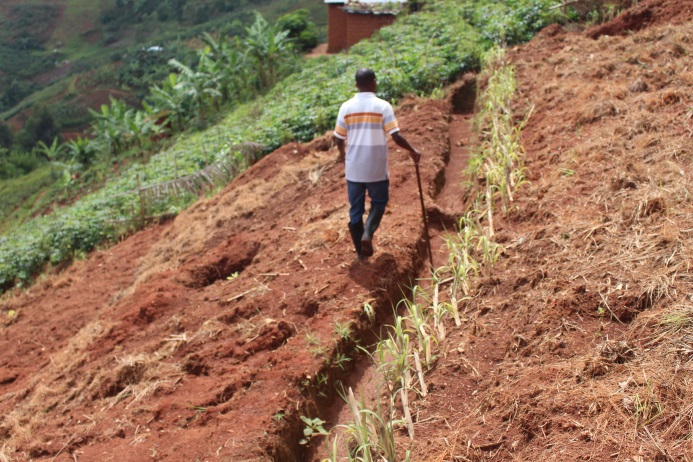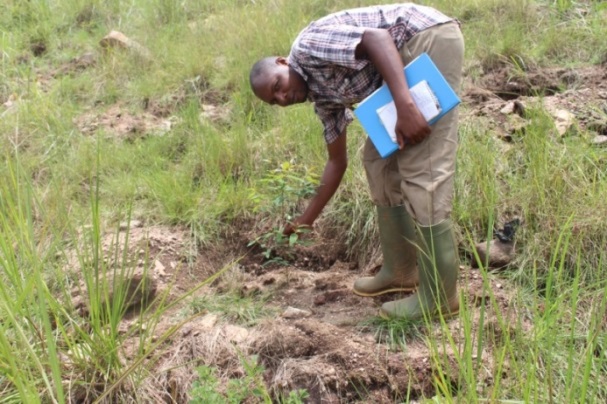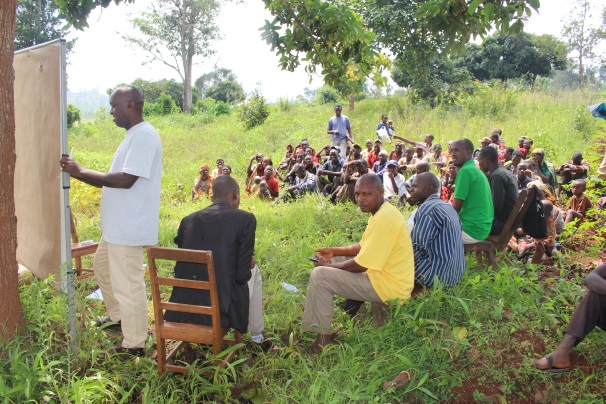



The ACCES project developed a holistic and participatory approach through the implementation of adaptation measures in the 3 pilot zones. This approach takes into account the environmental, societal, economic and pedoclimatic dimensions of Burundi.
The successive stages of implementation have consisted of establishing a list of adaptation measures that can respond to climatic stimuli. These measures have been categorized according to their typology: grey measures, green measures, capacity building, action research, policy framework. The project prioritized capacity building measures and green measures for feasibility and sustainability issues. The project then conducted participatory planning workshops in each of the pilot areas to assess their acceptability in consultation with the population. The result was a set of consensual and specific CCA measures for each of the zones. To ensure quality and sustainability, a follow-up technical committee was established locally (CTS-L). This committee is made up of people from the local administration, farmers leaders, association leaders, who are in charge of monitoring and sustaining the measures.
- Capacity building of actors on all levels on CC and CCA
- Good knowledge of the agricultural practices of the intervention zones (close collaboration with INADES-Formation Burundi)
- Participatory planning of CCA measures with the local population to ensure good acceptability
- Establishment and training of a Local Monitoring Technical Committee, a group representing the interests of the population in order to ensure the quality and sustainability of CCA measures.
In order to ensure the sustainability of CCA measures, it is imperative to ensure public support (through participatory planning), understanding (training, awareness-raising, capacity building) and accountability (Technical committee).
The holistic approach to adaptation measures has been based on a cross-cutting approach to environmental issues in Burundi, also drawing on the expertise of other GIZ projects (ProSecEau and EnDev Programs).
Innovative measures were first tested on a small scale to assess their impacts. Once validated, these measures could be duplicated in the other intervention areas of the project.